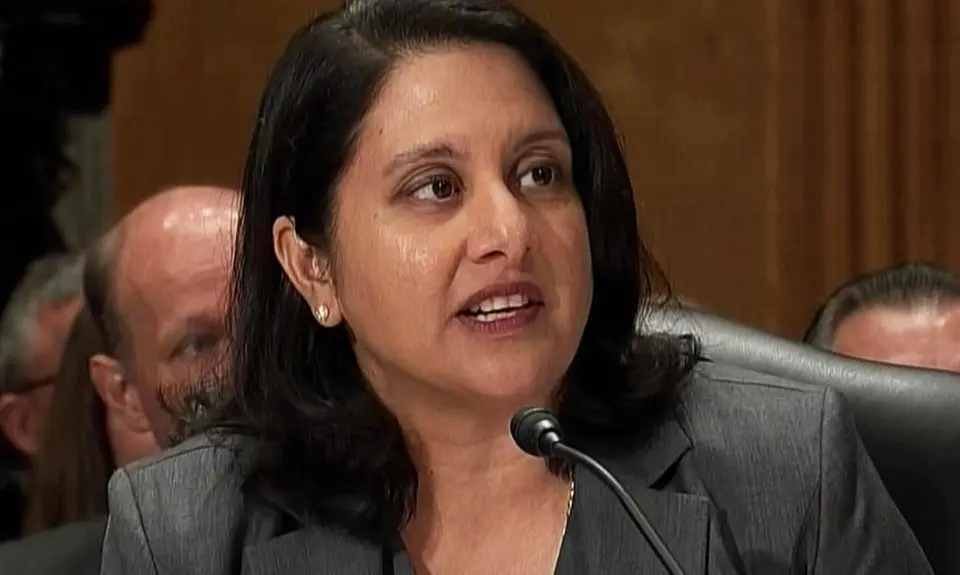“Confirmed Judges, Confirmed Fears” is a blog series documenting the harmful impact of President Trump’s judges on Americans’ rights and liberties. Cases in the series can be found by issue and by judge at this link.
Trump DC Circuit judge Neomi Rao argued in dissent from a full court ruling that a federal trial judge cannot even hold a hearing on the Trump Department of Justice’s (DOJ’s) withdrawal of the guilty plea of former Trump national security adviser Michael Flynn. The full DC Circuit, including George W Bush appointee Thomas Griffith, rejected that view, effectively overruling a prior panel ruling by Rao making similar arguments as in her dissent, and sent the case back to the trial court in its August 2020 decision in In re Michael Flynn.
As discussed in our previous blog entry on this case, former Trump national security adviser Michael Flynn had pleaded guilty to lying to FBI agents who were investigating Russian interference in the 2016 election. After significant criticism of the prosecution by Trump and his supporters, however, Trump’s DOJ filed a motion with DC federal judge Emmet Sullivan asking that he allow Flynn and DOJ to withdraw the guilty plea and to dismiss all charges against Flynn.
Even as Sullivan was considering whether to hold a hearing or take other action on the request, Flynn asked the DC Circuit to take the very unusual step of issuing a writ of mandamus ordering Sullivan to immediately dismiss the charges against him without a hearing. This would have been be an end-run around the normal judicial process. In a 2-1 decision, Trump judge Rao granted that relief, but the full DC Circuit decided to vacate her ruling and rehear the case.
In an 8-2 decision in which George W Bush nominee Thomas Griffith was part of the majority, the full DC Circuit denied the mandamus petition and sent the case back to Judge Sullivan. The majority opinion clearly stated that Flynn had failed to establish that he has “no other adequate means to attain the relief he desires” – dismissal of the charges against him—which the court explained is the requirement set by the Supreme Court to obtain mandamus relief.
Flynn and DOJ argued that it was inappropriate for Judge Sullivan to have appointed a friend of the court to write a brief on the issues in the case, and that this appointment should be vacated by the appeals court and the case should be immediately dismissed. As the court explained, however, there had been no showing of “irreparable” injury, as required by case law, if the process went forward and Judge Sullivan considered the brief and conducted a hearing on whether to accept the withdrawal of the guilty plea. While there may be some “burdens” on Flynn from the time that the proceedings will take, the court stressed that precedent is clear that such burdens “do not suffice” to justify a writ of mandamus instead of an ordinary appeal of Judge Sullivan’s order if necessary. The majority also rejected the argument that continuation of the procedure Judge Sullivan had begun would irreparably damage DOJ, noting that Judge Sullivan may well decide to accept the withdrawal of Flynn’s guilty plea, and sent the case back to his court for further proceedings.
Trump judge Rao strongly dissented, along with Judge Henderson. Rao took the position that DOJ’s decision to withdraw the plea cannot be questioned and argued that mandamus is appropriate to prevent the “judicial usurpation of executive power” by Judge Sullivan and to “correct the district court’s abuse of discretion.” Even though federal rules of procedure specifically provide that DOJ must obtain “leave of court” before a plea is withdrawn and a case dismissed, she claimed that DOJ has a “clear and indisputable right” to have the case dismissed and a district court cannot “countermand” such a decision. Simply having the district court proceed with the “inquisition” on the guilty plea, she went on, would case “irreparable harm” to the Executive Branch and the separation of powers under the Constitution.
The majority squarely rejected Rao’s claims, explaining that it is “simply not the case” that the Executive Branch would be “irreparably harmed” just by allowing the procedures ordered by Judge Sullivan to go forward. Contrary to the situation in cases relied upon by Rao, the majority went on, harms to the DOJ position on separation of powers were “speculative” and had not even been presented to Judge Sullivan. Ample precedent as well as the federal rules support Judge Sullivan’s approach, the majority continued, and unless and until he orders intrusive inquiry into DOJ’s motives as Rao speculated or takes other concrete action, an order from the court of appeals is “premature.”
In an additional concurring opinion, Judge Griffith pointed out that the majority had simply reached the “unexceptional but important conclusion” that the appellate court should “stay its hand and allow the district court to finish its work rather than hear a challenge to a decision not yet made.” As he noted, the federal courts have followed that approach “since the beginning of the Republic,” and the court was aware of “no case” supporting the relief Flynn and DOJ asked for. If it had been up to Rao, however, the appeals court would have ordered Judge Sullivan to immediately do as President Trump wants and dismiss all charges against Flynn.
